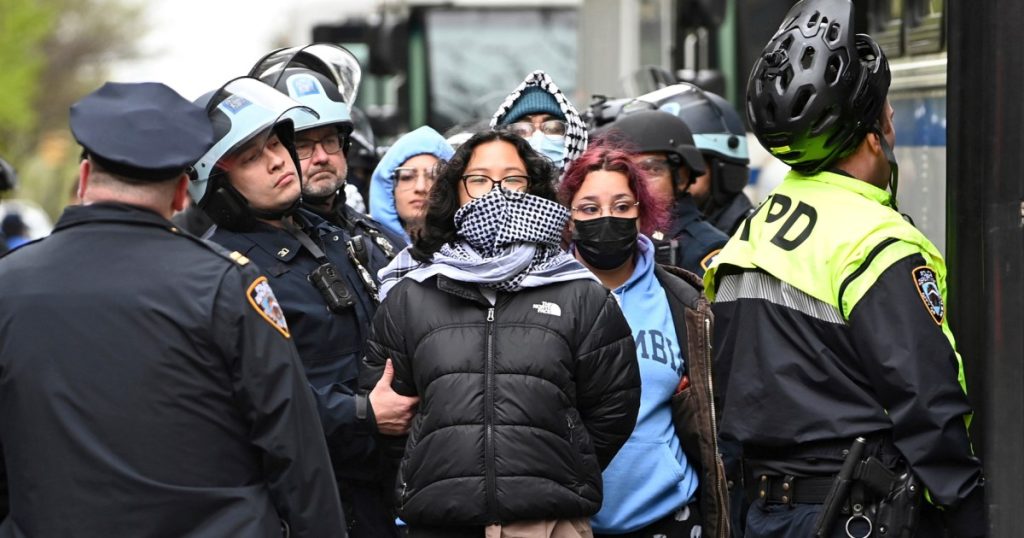The decision by Columbia University’s president, Nemat “Minouche” Shafik, to call in the New York Police Department to clear pro-Palestinian protesters from the campus has sparked protests at universities in New York City and across the country. The protests started after police arrested 108 Columbia University demonstrators, including Rep. Ilhan Omar’s daughter, Isra Hirsi. Similar protests have since erupted at universities such as New York University, Yale University, and the University of California, Berkeley. The encampment at Columbia was established on April 17 following questioning of Shafik about on-campus antisemitism.
The decision to involve the police at Columbia University has intensified the protests, with students feeling suppressed and censored by President Shafik. Many of the Columbia students protesting have demanded the school cut financial ties with Israel and divest from Israeli companies. This has inspired students at universities across the country to join the movement in solidarity. The movement is reminiscent of protests against the apartheid government of South Africa in the past, with organizers expressing the effectiveness of such actions in achieving concessions.
Despite the growing momentum of the pro-Palestinian movement, there has been a backlash from politicians on the right who are urging university administrators to crack down on the protesters. The ongoing encampments at Columbia’s campus have prompted Shafik to take steps to address the situation, with classes being held virtually and discussions ongoing to resolve the crisis. Some Jewish students at Columbia have expressed fear for their safety based on their experiences with antisemitism during the protests, while others have faced verbal abuse and threats.
Students involved in the pro-Palestinian protests have escalated pressure on the university by erecting tent encampments after previous forms of protest did not yield the intended results. The involvement of police has been seen as an extraordinary miscalculation, reminiscent of similar actions taken during anti-Vietnam War protests in 1968. The protests have spread to other universities in the country, with pro-Palestinian encampments being established on campuses such as MIT, the University of Texas, and others. New York Mayor Eric Adams has blamed outside agitators for using the Israel-Hamas conflict as an excuse for violence.
Amidst the ongoing protests, a group of Senate Republicans sent a letter to Attorney General Merrick Garland calling for action to restore order and protect Jewish students on college campuses. The letter did not address the protection of the pro-Palestinian protesters. The situation remains tense at Columbia and other universities as discussions continue on how to address the protests and find a resolution. President Shafik has faced criticism for the handling of the situation, especially with concerns about antisemitism and the impact on students’ safety and well-being.


